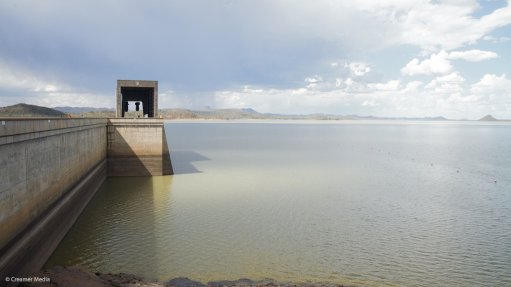
Photo by: Duane Daws
With ongoing water restrictions across the country, the Department of Water and Sanitation (DWS) is revisiting its policies on hydropower and the effect climate change has on the water sector.
South Africa has been struck by drought conditions over the last two years, which has had a significant impact on the agriculture sector. This calls for adaptation in the use of the country’s water resources.
However, the country’s need for energy has necessitated that it open up to independent power producers, with hydropower – a clean energy source – being such a focus. This resulted in a renewed effort to build hydropower infrastructure, while water challenges remained in place.
DWS chief development expert Tenda Rasikhanya on Thursday told delegates at a public consultation on government’s climate change and sustainable hydropower policies that owing to these factors, government now took the view that no new dams would be built for the sole purpose of hydropower generation, while the country’s existing water sources would be tackled in a multiple-use approach.
Along with its National Climate Change Response (NCCR) White Paper, which sets out the overall national government response to the challenges of climate change, the department gazetted a draft Sustainable Hydropower Generation Policy in July.
It echoes and reaffirms the NCCR, but has been developed as this sector needs a policy position that specifically addresses water and sanitation-related climate change issues, with the public given until month-end to comment on the draft policy.
“The NCCR is too broad to address these issues,” the DWS said.
Also speaking at the consultation, DWS climate change research specialist scientist Dr Christopher Moseki said that, as a result of high water evaporation and alien vegetation, only about 9% of rainwater was available to fill the country’s dams.
He noted that the impact of climate change was primarily felt on water resources.
Moseki added that he welcomed the drought as it “has woken South Africans up” to the issues the water-scarce country faces, noting that people no longer perceived water as a “problem” exclusive to the Department of Environmental Affairs or the DWS, but as a collective issue.
“We are all responsible to use what we have sparingly,” he added.